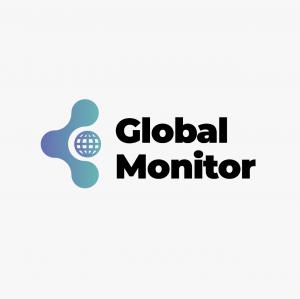Brazil Renewables Market Report With COVID-19 Analysis (2020-2025)
Brazil Renewable Energy Market is segmented by Source Type (Solar, Wind, Hydro, Bioenergy, and Other Renewable Energy Sources)
SEATTLE, WASHINGTON, UNITED STATES, December 6, 2020 /EINPresswire.com/ --Market Overview
Total electric generation capacity in Brazil has increased since 2000, the growth in the capacity is mainly due to increasing electricity generated from renewables. The growth in Brazil’s renewable sector is mainly due to its renewable policies such as differentiated feed-in tariff (FiT) scheme which impacted hugely for the development of the renewable sector. Besides supported policies, the government has also offered tax incentives for the development of the renewable energy sector. Brazil offers tariffs for biomass, biogas, solar, geothermal, hydropower and wind (offshore and onshore), with contract up to 20 years.
The major challenge for the country's aim towards its goal of 80% renewable energy by 2050 is the necessary grid expansion for supporting that capacity generation. Integration of renewable technology into the grid in an efficient manner is the key challenge and infrastructure development continues to face significant delays in the coming years. The primary issue with the conventional grid is its inability to handle more complex energy dynamics and integrate intermittent renewable technologies into the network.
Download overview @ https://www.globalmonitor.us/product/brazil-renewables-market-report
Higher carbon emissions are the main contention in Brazil energy policy that has determined the government. The Brazil government agreed in November 2016 where emissions are to be reduced by 80% to 95% by 2050. However, such targets are to be reviewed about its industry impacts.
Covid-19 has impacted global nations and businesses greatly including the renewable energy market. As the pandemic has impacted various industries which lead to the reduced consumption of electricity in both commercial and industrial segments. Brazil has reduced level of infection and death rates compared to other counties. Like most countries in the region, strict lockdowns had led to the closure of borders and led to a shutdown of all transportation, construction, retail and manufacturing activities. These factors led to the considerable weakening of the economy and forecasts for economic growth in Brazil for 2020 demonstrate a steep recession.
Download overview @ https://www.globalmonitor.us/product/brazil-renewables-market-report
Unlike the thermal and nuclear power sector, we expect generation in the non-hydro power renewable segment to grow at a steady rate. Strong winds and above-average sun hours coupled with reduced demand led to a surge in renewable power generation in the country. However, consumption is expected to remain low over 2020 with gradual recovery towards the end of the year. Reduced demand is expected to affect the power export market in Brazil.
Market Dynamics
The renewables market has shown strong growth in recent years and is expected to have continued growth over the coming years. Renewable energy is going to be the key driver of the German power generation mix diversification efforts due to the ongoing phasing plans of existing traditional power generation systems. For instance, nuclear capacity set to be phased out by 2022 and coal set to decline over the coming decade, under the announced 2038 phase-out target. The household electricity prices are high in the country that is mainly due to subsidies offered to renewable energy developers. The growth in renewables segment, both on a utility and distributed level, has severely battered revenues of utilities that are traditionally reliant on thermal-power generation.
Brazil Renewables Energy Market Scenario
The solar sector is performing greatly in the short term of 2020 despite Covid-19 hurdles in the country. Combined growth in the solar and wind sectors would enable Brazil to meet its energy target of 65% non-hydro power renewables by 2030. Capacity additions will be affected due to the inactivity across all power sectors leading to a general delay in project delivery of three-to-six months, which has led to reduced capacity growth.
Download overview @ https://www.globalmonitor.us/product/brazil-renewables-market-report
Short-term delays are expected in solar projects due to solar supply chain constraints curtailing from the impact of the Covid-19 outbreak. Solar markets across the globe are highly dependent on imports of solar panels and photovoltaic cells from China, and delivery of this equipment is expected to face delays due to preliminary destructive containment measures, which have affected manufacturing and production due to labour and logistical mobility issues. Battery storage systems will play a crucial role in Brazil as it tries to leverage its substantial capacity of distributed solar generation over the next decade.
Brazil Investment Scenario
Brazil coal exit plan will require substantial new investment in renewable energy and grid transmission capacity to ensure energy security. Changes in laws amending capacity expansion in the country will further drive the investment activities over the coming years. The continued investments in the Brazil transmission system will be required to facilitate the energy transition over the next decade. Hence, further investment activities are expected to grow in the transmission network projects over the coming years.
Download overview @ https://www.globalmonitor.us/product/brazil-renewables-market-report
Investment opportunities in the country are becoming less prevalent in recent years and are expected to have similar trends in the near short term. The current weak economic conditions will negatively impact power sector investment over the short to medium term period. The slower growth in baseload capacity may put pressure on governments to improve regulations to boost private sector investment in renewables to support the market growth against upside risk to medium- to long-term renewables growth in the country.
Bhanu Reddy
Global Monitor
+1 206-809-0882
email us here
Visit us on social media:
Twitter
LinkedIn

